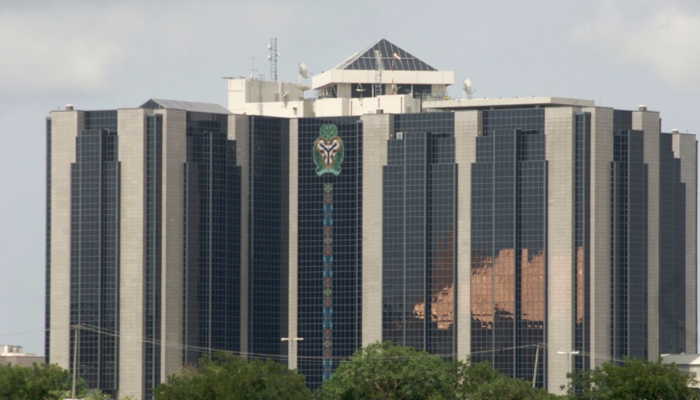The Central Bank of Nigeria (CBN) has called on Nigerians to promptly report any commercial bank or financial institution found selling naira notes to the public, describing such acts as illegal and a serious violation of the country’s monetary regulations. The apex bank stressed that the sale of currency undermines the integrity of the financial system, contributes to cash scarcity, and fuels illicit economic activities.
In a statement issued by its Corporate Communications Department, the CBN warned that it would not hesitate to take decisive action against banks or individuals involved in the illicit trade of naira notes. The bank said its monitoring teams, in collaboration with security agencies, are already active nationwide to investigate reports of currency racketeering and ensure those found culpable face legal consequences.

The CBN reiterated that the naira is the nation’s legal tender and should be freely accessible to all citizens through appropriate banking channels, not sold at a premium by unscrupulous operators. It said the sale of naira notes — whether new or old denominations — is prohibited under the CBN Act and attracts severe penalties, including prosecution and revocation of banking licences for institutions found guilty.
This renewed warning comes amid persistent concerns from the public about limited cash availability at Automated Teller Machines (ATMs) and banking halls, with some customers alleging that certain bank officials hoard new naira notes for sale to event organisers, traders, or individuals willing to pay extra. These activities, according to the CBN, distort currency circulation and erode public trust in the financial sector.
The apex bank explained that the problem often intensifies during festive seasons, weddings, and social events where demand for crisp banknotes is high. In such cases, unscrupulous bank staff allegedly divert cash meant for ATMs or over-the-counter withdrawals and sell them to middlemen, who in turn resell the notes at inflated rates.
To curb this menace, the CBN urged Nigerians to lodge formal complaints with detailed evidence whenever they encounter such practices. Reports can be submitted through its official website, hotlines, or directly to its branch offices across the federation. The bank assured that all complaints would be treated confidentially and whistleblowers protected from any form of victimisation.
Industry analysts have described the illegal sale of naira notes as a form of corruption within the banking sector that feeds on weak enforcement of regulations. They note that while the CBN has periodically cracked down on offenders, more consistent enforcement, stiffer penalties, and public vigilance are necessary to end the practice.
In recent months, the Economic and Financial Crimes Commission (EFCC) has also been involved in arresting individuals caught selling naira notes, particularly at party venues, markets, and event centres. The EFCC has stressed that the act contravenes Sections 20 and 21 of the CBN Act 2007, which criminalise the spraying, hawking, and misuse of the national currency.
Legal experts point out that beyond criminal penalties, banks risk reputational damage if their staff are implicated in such illegal transactions. They argue that customer trust is central to banking operations, and any perception of exploitation by bank officials could lead to loss of clientele and reduced market confidence.
The CBN’s renewed stance is part of its broader effort to maintain the value and dignity of the naira, promote financial inclusion, and ensure the stability of the monetary system. The bank has been implementing several initiatives, including improved cash distribution logistics, digital payment infrastructure, and eNaira promotion, to reduce dependency on physical cash.
However, financial experts warn that unless illegal currency sales are curbed, the benefits of these reforms may be undermined. They recommend that banks strengthen internal controls, rotate cash-handling staff to prevent collusion, and use surveillance technology to monitor suspicious transactions.
Public advocacy groups have also weighed in, calling for civic responsibility in combating the illicit sale of naira notes. According to them, citizens must resist the temptation to buy cash for convenience and instead demand accountability from both banks and regulators.
The apex bank emphasised that every Nigerian has a role to play in safeguarding the nation’s currency. It appealed to citizens to embrace electronic payment options wherever possible, especially for large transactions, to ease pressure on physical cash demand and reduce opportunities for currency hoarding.
In its concluding remarks, the CBN assured that it is determined to protect the naira’s sanctity, warning that any bank or official caught engaging in currency trading will face swift and decisive sanctions. It vowed to sustain nationwide enforcement operations in collaboration with law enforcement agencies until the illegal sale of naira notes is eradicated.
The bank further urged the public to remain vigilant, cooperate with regulators, and prioritise lawful banking channels for accessing cash. It maintained that restoring discipline and transparency in currency distribution is key to preserving public trust in Nigeria’s financial system and strengthening the economy’s stability.
Support InfoStride News' Credible Journalism: Only credible journalism can guarantee a fair, accountable and transparent society, including democracy and government. It involves a lot of efforts and money. We need your support. Click here to Donate
